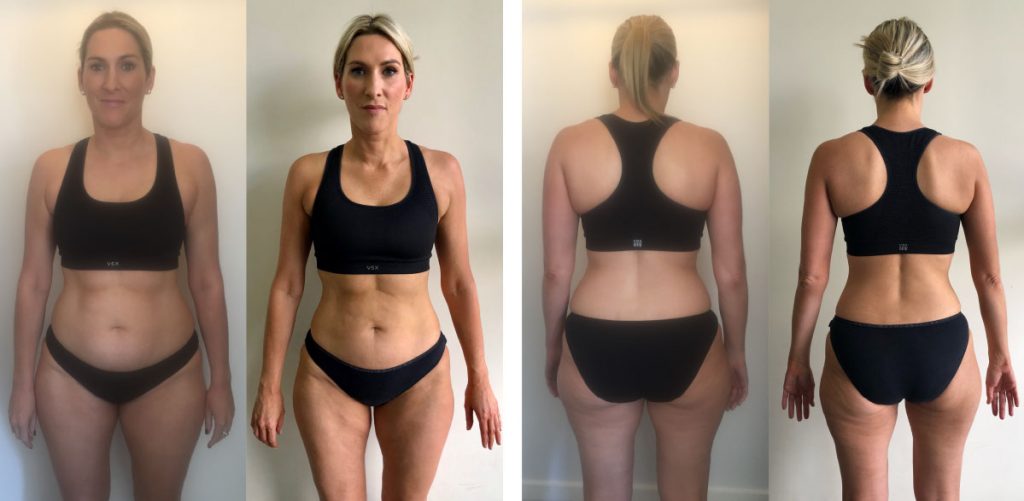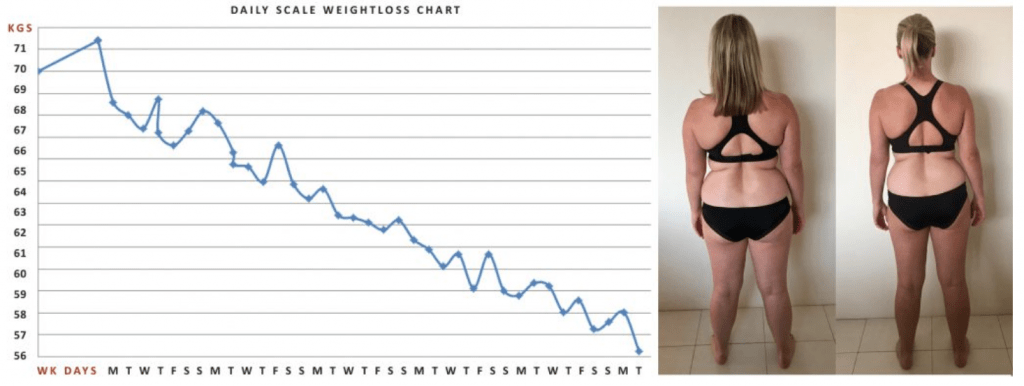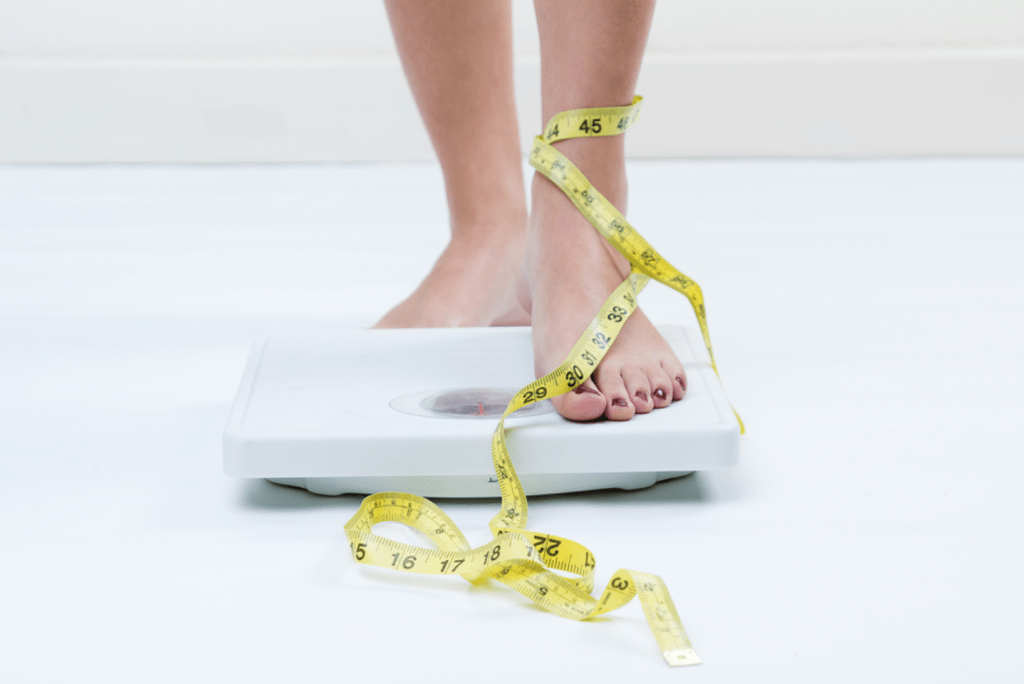
How Kerry Lost 16kgs Without Exercise
31/10/2019
Stay Fit While Travelling
19/11/2019Why Weight Fluctuates Daily & Why You Shouldn’t Worry!

For a long time now I’ve been experimenting with weighing myself daily and I realised the number I see when I step on those scales is almost always nonsense. Individual results don’t tell you anything – because there’s just too much variation, hidden forces and ‘life’ that influence that little number which can throw your entire mood and day into a spin. It’s only when you have a few weeks-worth or scale stats, that you can start to reliably pick a general trend.
So what influences that little number that can move as dramatically as 2-3kgs overnight?
Stress, water intake, salt intake, eating out (yes, even if it’s healthy!), carbs, alcohol, cheat meals, how frequently you ‘poop’, training, inflammation from eating incompatible foods with your blood type, menstrual cycle, ovulation, coffee, meditation, sweat, weather, dehydration, outdoor temperatures, sitting at a desk all day, overtraining, poor sleep, inconsistent circadian rhythm, bacteria in your microbiome etc, etc, etc … it’s called ‘life’.
No day is identical to the previous day, thus the scale is a summary of not just your physical weight – but your mental, emotional and spiritual ‘weight’ too.
Have you ever gotten off a long flight feeling bloated and fat? Air travel can impact your weight by disrupting not only your circadian rhythm but also the rhythm of the bacteria in your gut microbiome. Furthermore, the food you eat is processed and loaded with cheap salt and you most likely would have experienced altitude water retention, poor circulation, dehydration and constipation. Are you actually gaining weight while you’re in the air? Of course, not. But the scale might have you believe otherwise.
The scale has wielded too much power over your life for too long. But individual measurements aren’t what matters. The overall trend line is.

It’s more important to focus on how you feel, how your clothes are fitting, monthly progress pictures or on weekly measurements such as your waist, hips and thighs. Check ALL your stats and look at the overall weightloss trend, and be patient – you didn’t gain the kilo’s in four weeks so don’t expect them to fall off in three!
Whenever you see a drastic change in what the scale says, ask yourself;
- Am I stressed?
- Is that time of the month approaching?
- Did I hydrate the same amount per day?
- Are my bowel movements regular?
- I am I tired?
- Did I sleep enough and well?
- Did I eat right for my blood type?
- Did I eat out, have a clean cheat or use extra salt?
- Did I overtrain?
Above all, trust the process – BodyIQ is the quickest and best way for healthy, rapid fat loss – but allow time to get healthy first so the kilo’s naturally fall off and so that you become ‘fat adapted’. And when you’re ‘fat adapted’, your body will switch to using its own fat stores instead of relying on carbs for energy, burning fat at an unusually fast rate!
So how do you figure out how much you weigh?
Whatever you do, don’t fall into the trap of relying on the weekly number that is reflected on your scales – it’s just not enough data for you to know what’s really happening. Weigh yourself every morning but ignore the number that comes up on the scales. Instead, take the average of the last seven days (preferably ten or fourteen), and after several weeks look at how that average is changing over time. That’s where the real truth lies. Scales are great accountability and tracking tool – but look at the big overall picture and put things into perspective.
So how do you weigh yourself correctly? First thing in the morning after you’ve gone to the toilet, naked and before you’ve consumed any food, water or coffee.





